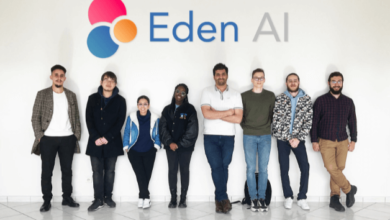Meta Facebook Marchkrasnoff Theverge

Meta, formerly known as Facebook, has undergone a significant transformation since its inception. This article aims to provide an objective and informative overview of the history of Meta, highlighting key milestones and developments that have shaped its current landscape. Additionally, it will explore controversies surrounding the platform, such as privacy concerns and issues related to misinformation.
Finally, the article will examine Meta’s future direction and the potential implications for users.
From its humble beginnings in 2004 as a social networking platform founded by Mark Zuckerberg at Harvard University, Meta has grown into one of the most influential companies in the tech industry today. It has revolutionized how people connect and communicate globally, with billions of active users across its various platforms. Over time, Meta expanded beyond its initial scope of connecting friends and family to encompass a wide range of services and products.
However, along with its immense popularity came controversies surrounding user privacy. Critics argue that Meta’s business model relies on collecting vast amounts of user data for targeted advertising purposes, raising concerns about personal information security. Moreover, there have been instances where misinformation spread on the platform has had real-world consequences. These controversies have prompted debates about ethical responsibility within online communities.
As Meta rebrands itself and sets forth on a new path under its new name, it is essential to analyze how this transformation may impact individual freedoms. With increased scrutiny on privacy practices and efforts to combat misinformation while maintaining user engagement, understanding these changes becomes crucial for those who value their freedom to navigate digital spaces without compromising their rights or well-being.
The History of Meta: From Its Inception to Present Day
The evolution of Meta, from its establishment to the present day, serves as a fascinating chronicle of the company’s growth and transformation.
With a focus on virtual reality (VR) and augmented reality (AR), Meta has made significant strides in pushing the boundaries of these technologies and shaping their future.
Meta’s impact on virtual reality can be seen through its development of innovative VR headsets, such as the Oculus Rift, which revolutionized the way people experience immersive digital environments.
Additionally, Meta’s acquisition of companies like Oculus VR has further strengthened its position in the VR market.
Looking towards the future of augmented reality, Meta is actively investing in AR technologies to bring about new possibilities for human-computer interaction.
Its advancements in spatial computing and gesture recognition have paved the way for more intuitive AR experiences that seamlessly blend digital content with the physical world.
As Meta continues to evolve and expand its offerings, it holds great potential in shaping the future landscape of both virtual and augmented reality.
Controversies Surrounding Meta: Privacy, Misinformation, and More
This paragraph discusses the controversies surrounding Meta, focusing on three key points: privacy concerns and data collection practices, combatting misinformation and fake news, and addressing issues of online harassment and hate speech.
Privacy concerns have been raised due to Meta’s history of collecting user data and its potential impact on user privacy.
Combatting misinformation and fake news is a significant challenge for Meta as it strives to ensure the accuracy and reliability of information shared on its platform.
Additionally, addressing issues of online harassment and hate speech is crucial in creating a safe and inclusive digital environment.
Privacy Concerns and Data Collection Practices
Privacy concerns and data collection practices have raised significant ethical considerations in the digital age, prompting scrutiny over the acquisition and utilization of personal information.
As technology continues to advance, privacy regulations struggle to keep pace with the ever-evolving landscape of social media platforms like Meta (formerly Facebook).
The ethical implications surrounding data collection practices by these platforms are multi-faceted.
Firstly, individuals may unknowingly provide consent for their personal information to be collected and utilized for targeted advertising or other purposes without fully understanding the extent of such practices.
Secondly, the mass accumulation of personal data raises concerns about its potential misuse, as it can be exploited for manipulative purposes or even sold to third parties.
Finally, there is a lack of transparency regarding how exactly user data is being processed and protected, leaving users uncertain about their digital footprint.
These issues highlight the need for comprehensive privacy regulations that address both the responsibilities of platforms like Meta and the rights of users to maintain control over their personal information in an increasingly interconnected world.
Combatting Misinformation and Fake News
Combatting misinformation and fake news requires robust strategies that promote critical thinking, fact-checking, and media literacy to enhance the public’s ability to discern accurate information from false narratives.
Fact checking initiatives play a crucial role in this process by providing an objective assessment of the veracity of claims made in news articles and social media posts. By systematically verifying facts and debunking falsehoods, these initiatives help counter the spread of misinformation and restore trust in reliable sources of information.
The impact of misinformation on democratic processes cannot be underestimated, as it can manipulate public opinion, sway elections, and undermine the functioning of a healthy democracy. Therefore, efforts to combat fake news are essential for preserving the integrity of democratic systems around the world.
Furthermore, promoting media literacy is equally important as it empowers individuals to critically evaluate information sources, identify biases or propaganda techniques used by purveyors of false narratives, and make informed decisions based on accurate information.
Through such strategies, society can work towards mitigating the harmful effects of misinformation while upholding principles that safeguard freedom of thought and expression.
Addressing Issues of Online Harassment and Hate Speech
Addressing the pervasive issue of online harassment and hate speech necessitates comprehensive strategies that prioritize the protection of individuals’ safety and well-being in digital spaces.
Online communities have become breeding grounds for toxic behavior, where individuals are subjected to various forms of harassment, including cyberbullying, offensive comments, and targeted attacks based on race, gender, or other characteristics.
Read also: Meta Netherlandsbased Meta Project Ariasilberlingtechcrunch
To ensure online safety, platforms like Facebook need to implement robust systems that can identify and remove harmful content promptly. This requires investing in advanced artificial intelligence technologies that can detect hate speech and flag it for human review.
Additionally, fostering a positive online environment entails promoting user education about responsible digital citizenship and equipping them with tools to report abusive behavior effectively.
By taking proactive measures to combat online harassment and hate speech, social media platforms can create inclusive spaces where individuals feel safe expressing themselves freely without fear of intimidation or discrimination.
Meta’s Transformation: The Road Ahead
This paragraph discusses key points related to Meta’s transformation and its future endeavors.
Firstly, the company is making efforts to enhance user experience and safety on its platforms. This involves implementing measures to address privacy concerns, misinformation, and other controversies surrounding it.
Secondly, Meta is actively working on innovations and new features that aim to reshape social media and technology landscapes. These developments are expected to bring about substantial changes in how people interact online.
Lastly, as one of the leading players in the industry, Meta holds a significant role in shaping the future of social media and technology by influencing trends, policies, and user behaviors through its platforms and initiatives.
The Company’s Efforts to Improve User Experience and Safety
Efforts have been made by Facebook to enhance user experience and safety on their platform.
One way they have addressed this is by improving content moderation. Facebook has implemented various measures, such as employing artificial intelligence algorithms and expanding its team of human moderators, to better detect and remove harmful or inappropriate content from the platform.
Additionally, they have developed tools that allow users to customize their news feed preferences and control the types of content they see, thus enhancing user privacy.
These efforts demonstrate Facebook’s commitment to creating a safer online environment for its users while also providing them with a more personalized and tailored experience.
Innovations and New Features in the Pipeline
In terms of future developments, Facebook is currently working on implementing new features and innovations to further enhance user experience and engagement.
One interesting statistic reveals that the company plans to invest heavily in virtual reality technology, with a projected 10 million Oculus Quest headsets sold by the end of 2021.
Additionally, Facebook is focusing on incorporating user feedback into their updates, ensuring that the platform reflects the needs and preferences of its users. This commitment to listening and responding to user feedback demonstrates their dedication to continuously improving the platform.
Moreover, Facebook is actively exploring technology advancements to introduce unique and exciting features for its users. These innovations might include enhanced privacy tools, improved content moderation systems, or even new ways of connecting with friends and family across the globe.
By keeping up with emerging technologies and integrating them into their platform, Facebook aims to stay at the forefront of social media innovation while providing an engaging experience for its users who desire freedom in expressing themselves online.
Meta’s Role in Shaping the Future of Social Media and Technology
Meta’s vision for the future of social media and technology involves pushing boundaries and exploring new possibilities, ultimately shaping an innovative landscape that fosters connectivity and engagement.
One key aspect of this vision is the shaping of algorithms to enhance user experiences and ensure relevant content delivery. Meta aims to leverage its expertise in artificial intelligence (AI) integration to create personalized and tailored experiences for users.
By analyzing user preferences, behavior patterns, and interactions, Meta can develop algorithms that predict and deliver content that aligns with individual interests, increasing engagement and satisfaction.
Additionally, AI integration enables Meta to continuously refine its platform by learning from user feedback, allowing for continuous improvement in content recommendation systems.
With these advancements in algorithmic capabilities, Meta seeks to create a social media experience that is both immersive and customized, fostering deeper connections between users while simultaneously empowering them with greater control over their online presence.
Frequently Asked Questions
What is the significance of Meta’s rebranding and how does it impact the future of the company?
The significance of Meta’s rebranding lies in its potential to reshape the company’s future. By distancing itself from Facebook, Meta aims to redefine its identity and focus on emerging technologies, which may attract a wider audience and promote innovation within the company.
How does Meta plan to address the concerns regarding privacy and data security on its platforms?
To address privacy concerns and data security on its platforms, Meta plans to implement stricter measures, such as enhanced user control over data sharing, improved encryption protocols, and increased transparency in data handling practices. Read More about indexnasdaq: .ixic
What steps is Meta taking to combat the spread of misinformation on its social media platforms?
To combat the spread of misinformation on its social media platforms, Meta is implementing several steps. These include employing fact-checkers, developing AI algorithms to detect false content, partnering with external organizations, and promoting user reporting mechanisms for flagging misleading information.
How will Meta’s transformation impact its existing products and services, such as Facebook and Instagram?
The transformation of Meta may have an impact on users by potentially introducing changes to existing products and services like Facebook and Instagram. This could present rebranding challenges as the company seeks to align its image with its new vision.
What innovations or developments can we expect from Meta in the coming years, and how will they shape the digital landscape?
Innovations and developments from Meta in the coming years will reshape the digital landscape. These advancements will revolutionize user experiences, redefine social interactions, and create new possibilities for connectivity and self-expression within the digital realm.
Conclusion
In conclusion, the history of Meta is a testament to its evolution and growth over time. From its humble inception as Facebook in 2004, the company has undergone numerous transformations, ultimately leading to its rebranding as Meta in 2021.
Despite facing controversies surrounding privacy and misinformation throughout its journey, Meta has demonstrated a commitment to addressing these issues and improving its platform.
Looking ahead, Meta’s transformation holds great potential for the future of social media and technology. With a focus on building a metaverse that connects people in virtual spaces, the company aims to revolutionize how we interact and communicate online.
While there are challenges to overcome in terms of privacy concerns, data security, and ethical considerations, Meta’s dedication to innovation and progress suggests that they will continue striving towards creating a safer and more immersive digital environment.
As we delve deeper into the possibilities of a metaverse powered by Meta’s technology, it becomes clear that this concept is not merely science fiction but an attainable reality. The integration of virtual reality, augmented reality, and artificial intelligence opens up new avenues for communication, entertainment, education, and beyond.
However, it is crucial that we approach this transformation with caution and critical thinking. Ensuring user privacy rights are protected while combating misinformation will be paramount for the success of Meta’s vision.
In summary, Meta’s journey from Facebook to becoming a leader in the development of a metaverse reflects both the challenges faced by social media platforms and their potential for positive change. By acknowledging past controversies and actively working towards solutions while embracing technological advancements responsibly, Meta paves the way for an exciting future where virtual experiences blur with our physical reality.




